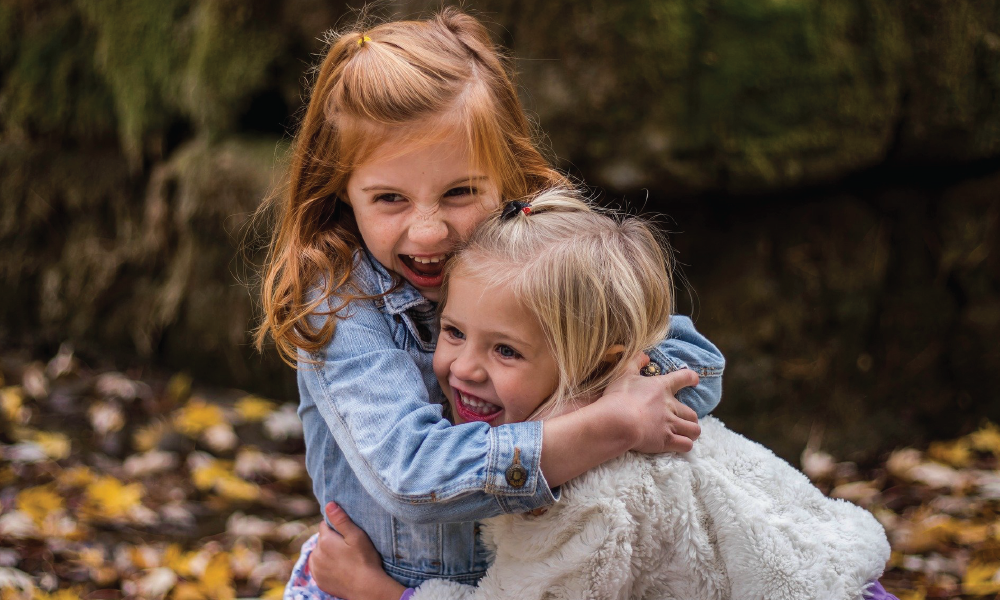The importance of empathy in child development
Empathy and its importance in child development has been emphasized time and again by child experts. Empathy is the ability to understand what someone is feeling. It is the ability to accurately put yourself “in someone else’s shoes”– to acknowledge others’ situations, perceptions, and feelings from their point of view and to be able to communicate that understanding back to the opposite person. Enhancing empathy in child development is crucial. And it’s not something that all of us are born with. It’s a skill that we can work upon.
Empathy is a choice. Everyone is born with various levels of compassionate capacity. However, it is a skill that may be evolved and enhanced. Building an understanding of what others are feeling, how their own behavior can impact others, and why someone might be experiencing feelings at a particular time is a significant life skill for children to possess. Various exploration studies have demonstrated that both humor and empathy are related with fulfilling and solid relational connections.
- It helps our young ones build strong and more satisfying relationships with other children and peers.
- Promotes social harmony and lessens the chances of bullying
- Encourages tolerance and acceptance of others. Talking to your child about how other people may be feeling, and why helps to build their emotional language.
Empathy in child development – is one of the most powerful tools to help you understand what drives certain types of behaviors. It can help you and your child work together as a team to overcome life’s challenges. And it can even help you connect during the difficult moments in life.
Here are a few tips on how you can impart empathy in your children
- Validate your child’s emotions -This shows your kid that they are significant enough for you to pay attention to and comprehend. In the event, if your toddler doesn’t feel appreciated or understood, they might respond by using negative emotions to get you to pay attention. By utilizing approval, your toddler will feel that you treat them in a serious way and acknowledge their efforts.
- Be a role idol – Lead by example. Your kids are picking up every little thing from you. As primary caregivers, it’s our responsibility to show them that we can do better by being empathetic to people around us, to animals around us, to the environment around us. It’s only natural that our kids are going to learn to be more empathetic.
- Sense of togetherness should be there at any cost – Children who spend time with their parents participating in activities together build a positive sense of self-worth. When children feel that they are valued by their parents, they feel more positive about themselves
- Teach polite responses – You should always respect and treat everyone equally so that they will learn how to be empathetic in their life. Empathy is nothing really but perspective taking. Always talk to your children about the situation. By having these kinds of perspective taking conversations, your kids are going to become more and more compassionate and empathetic.
Activities to inculcate empathy in children:
Parents can cultivate empathy in children by showing their kids how to be empathetic and talking about why it is important. Learning empathy is like studying a language or a sport; it requires continuous practice and guidance.
- Write a kind note for a family member – Having your child take a moment for positive considerations and then articulate it in a note does well to foster kindness.
- Empathize with your child – When we empathize with our children, they develop trust, secure attachments with us, and want to adopt our values and our behavior.
- Volunteer at an animal shelter- Teaching compassion towards animals is a great way to practice empathy. Kids are naturally attracted to animals and they love to help them.
- Empathy in child development- It helps your children understand that they should be considerate of the people around them. They must be polite even when they’re in a grumpy mood, help pick up their toys, and listen while others are talking.
Download your set of EQ worksheet here.
Here are some examples of empathetic responses
- Acknowledge their pain – One of the best things one can do is to acknowledge how the other person feels. The most fundamental and powerful way to connect with another person is to just listen. Because the most important thing we ever give each other is our attention.
- Share how you feel and show interest in what your child is doing.
- Show gratitude that your child opens up to you, And be patient as your child learns the importance of empathy. It is something that is not learned overnight.
- Be supportive. Think through the use of “I’m sorry. Help children understand why and when they should say it.
Also read on the multiple benefits of reading to children
Conclusion
Tickle Right strongly believes the highest form of knowledge is empathy. We wish for our kids to be kind and compassionate. Because empathy helps us see another person’s point of view and feel how they might be feeling. When your child is empathetic, s/he can make friends easily, avoid fights, and find resolutions to conflicts. But it doesn’t stop at that!
Empathy is the core value in Emotional Quotient (EQ) – the ability to recognize one’s own emotions and that of others. Children who grow up with high levels of E.Q are more likely to find academic success, be effective in leadership roles, and generally find more happiness and satisfaction in personal relationships later in life.

